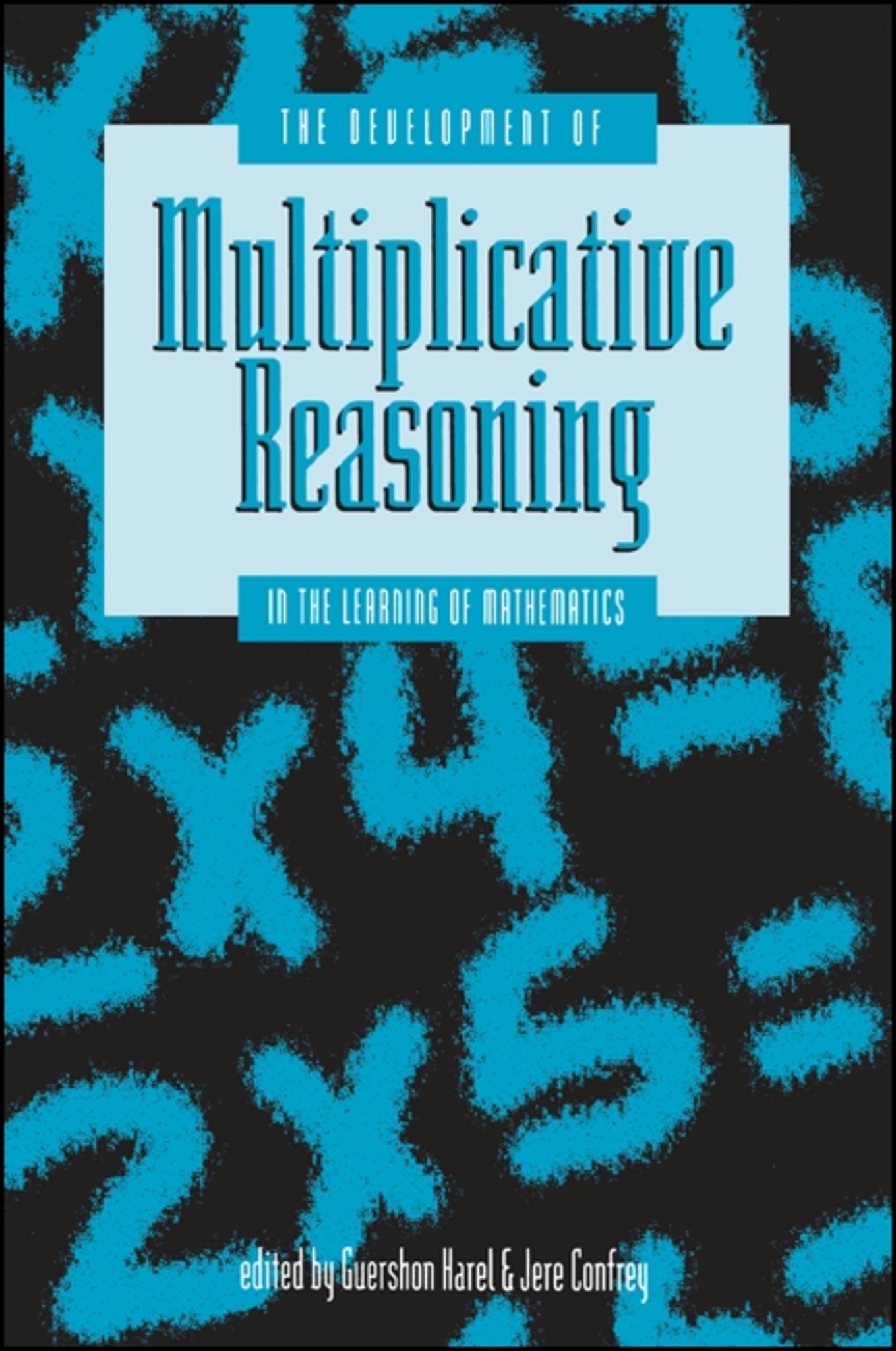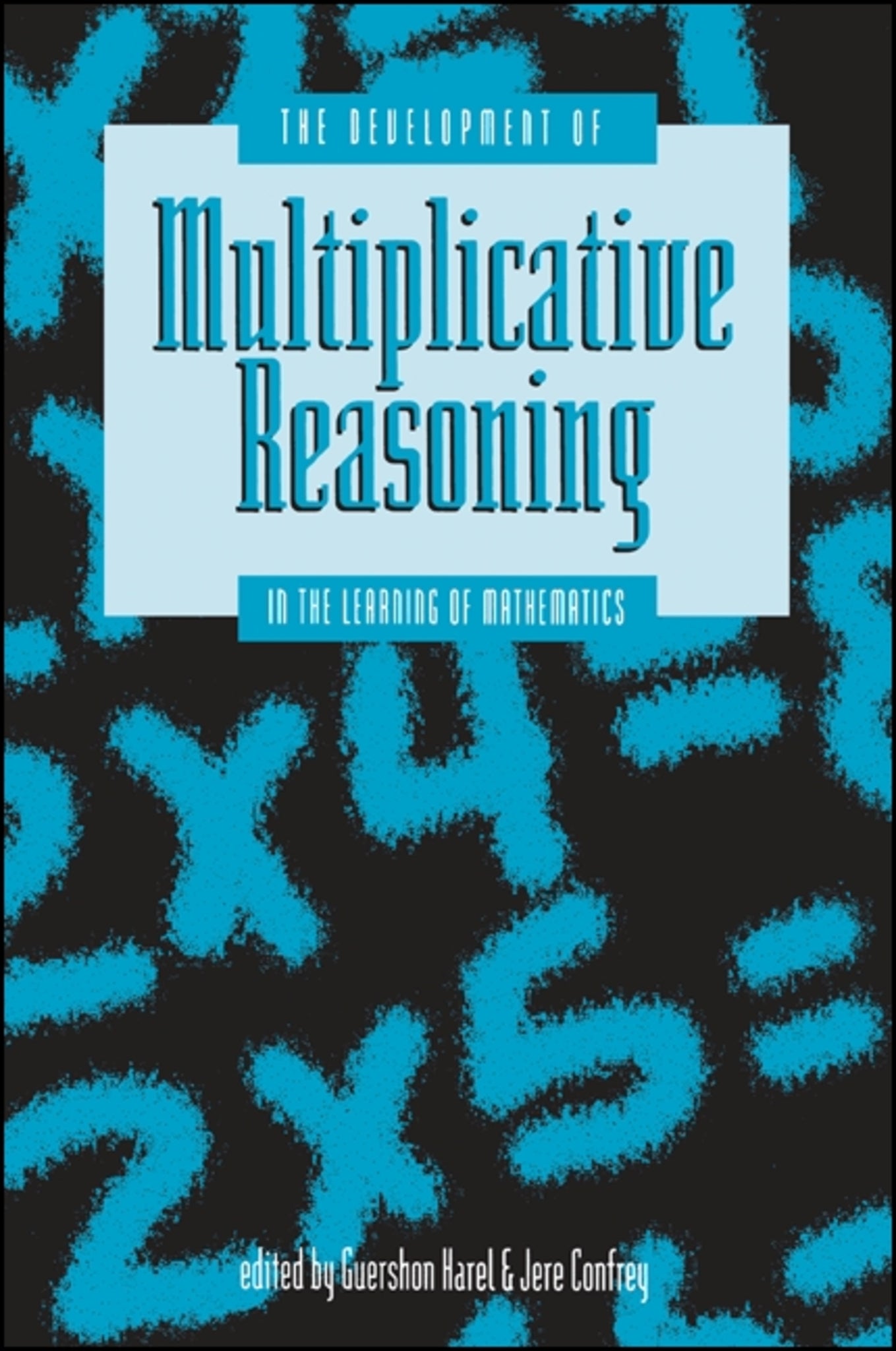We're sorry. An error has occurred
Please cancel or retry.
The Development of Multiplicative Reasoning in the Learning of Mathematics

Some error occured while loading the Quick View. Please close the Quick View and try reloading the page.
Couldn't load pickup availability
- Format:
-
28 June 1994

Two of the most important concepts children develop progressively throughout their mathematics education years are additivity and multiplicativity. Additivity is associated with situations that involve adding, joining, affixing, subtracting, separating and removing. Multiplicativity is associated with situations that involve duplicating, shrinking, stressing, sharing equally, multiplying, dividing, and exponentiating.
This book presents multiplicativity in terms of a multiplicative conceptual field (MCF), not as individual concepts. It is presented in terms of interrelations and dependencies within, between, and among multiplicative concepts. The authors share the view that research on the mathematical, cognitive, and instructional aspects of multiplicative concepts must be situated in an MCF framework.


"An excellent state-of-the-art sourcebook." — Anna O. Graeber, University of Maryland, College Park
Introduction
Part I: Theoretical Approaches
1. Children's Multiplying Schemes
Leslie Steffe
2. Multiplicative Conceptual Field: What and Why?
Gerard Vergnaud
3. Extending the Meaning of Multiplication and Division
Brian Greer
Part II: The Role of The Unit
4. Ratio and Proportion: Cognitive Foundations in Unitizing and Norming
Susan Lamon
5. Units of Quantity: A Conceptual Basis Common to Additive and Multiplicative Structures
Merlyn Behr, Guershon Harel, Thomas Post, and Richard Lesh
Part III: Ratio and Rate
6. The Development of the Concept of Speed and Its Relationship to Concepts of Rate
Patrick Thompson
7. Missing-Value Proportional Reasoning Problems: Factors Affecting Informal Reasoning Patterns
James Kaput and Mary Maxwell West
Part IV: Multiplicative Worlds
8. Splitting, Similarity, and Rate of Change: A New Approach to Multiplication and Exponential Functions
Jere Confrey
9. Multiplicative Structures and the Development of Logarithms: What Was Lost by the Invention of Function?
Erick Smith and Jere Confrey
Part V: Intuitive Models
10. The Impact of the Number Type on the Solution of Multiplication and Division Problems: Further Investigations
Guershon Harel, Merlyn Behr, Thomas Post, and Richard Lesh
Summary
11. Multiple Views of Multiplicative Structures
Thomas Kieren
Index



